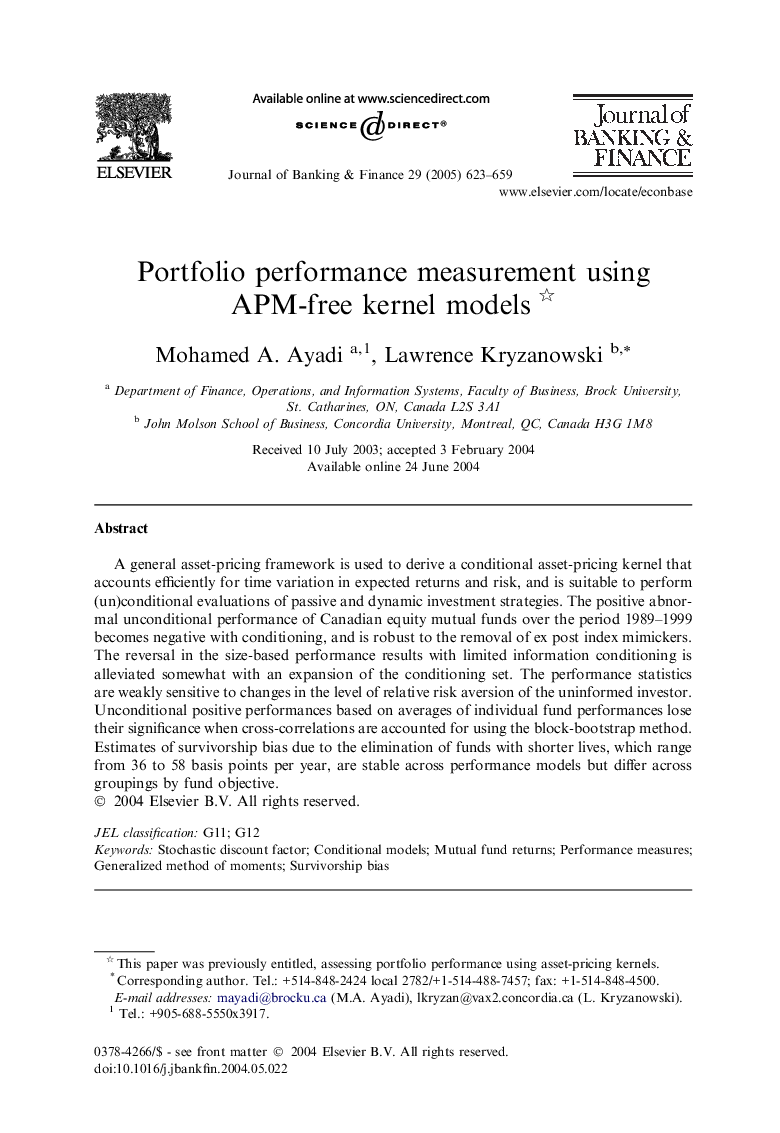| Article ID | Journal | Published Year | Pages | File Type |
|---|---|---|---|---|
| 9553913 | Journal of Banking & Finance | 2005 | 37 Pages |
Abstract
A general asset-pricing framework is used to derive a conditional asset-pricing kernel that accounts efficiently for time variation in expected returns and risk, and is suitable to perform (un)conditional evaluations of passive and dynamic investment strategies. The positive abnormal unconditional performance of Canadian equity mutual funds over the period 1989-1999 becomes negative with conditioning, and is robust to the removal of ex post index mimickers. The reversal in the size-based performance results with limited information conditioning is alleviated somewhat with an expansion of the conditioning set. The performance statistics are weakly sensitive to changes in the level of relative risk aversion of the uninformed investor. Unconditional positive performances based on averages of individual fund performances lose their significance when cross-correlations are accounted for using the block-bootstrap method. Estimates of survivorship bias due to the elimination of funds with shorter lives, which range from 36 to 58 basis points per year, are stable across performance models but differ across groupings by fund objective.
Keywords
Related Topics
Social Sciences and Humanities
Economics, Econometrics and Finance
Economics and Econometrics
Authors
Mohamed A. Ayadi, Lawrence Kryzanowski,
